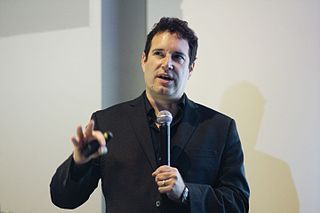A Quote by Seymour Papert
Adults have been brainwashed into thinking that they can't really learn about computers without being taught, so it's more difficult for them to feel comfortable with a computer. Deep down, I think they're afraid of learning about computers.
Related Quotes
I've been asked to explain why I don't worry much about the topics of privacy threat...One reason is that these scenarios seem to assume that there will be large, monolithic bureaucracies...that are capable of harnessing computers for one-way surveillance of an unsuspecting populace. I've come to feel that computation just doesn't work that way. Being afraid of monolithic organizations especially when they have computers, is like being afraid of really big gorillas especially when they are on fire.
I was really looking at computers as a way to understand the mind. But at M.I.T., my mind was blown by having a whole computer to yourself as long as you liked.I felt a surge of intellectual power through access to this computer, and I started thinking about what this could mean for kids and the way they learn. That's when we developed the computer programming language for kids, Logo.






































